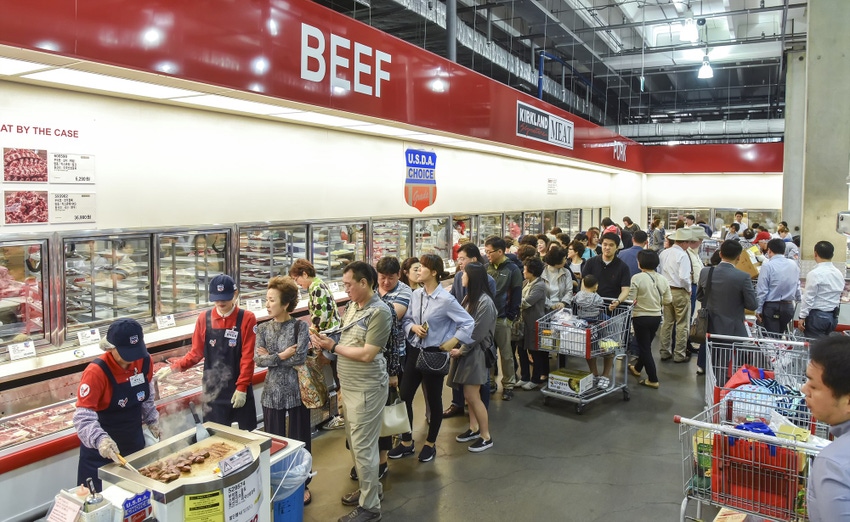Nearly 50 U.S. agribusinesses, farm groups and state departments of agriculture spent Nov. 5-8 in South Korea to enhance trading relationship.

An estimated $3 million in short-term sales and another $30 million in sales projected for the next month were signed during a trade mission to South Korea Nov. 5-8. Representatives from nearly 50 U.S. agribusinesses and farm organizations joined Foreign Agricultural Service (FAS) administrator Ken Isley on a U.S. Department of Agriculture trade mission to Seoul, South Korea, this week.
“Korea is consistently among the largest and most reliable export markets for U.S. agriculture, and the U.S.-Korea Free Trade Agreement, known as KORUS, has opened up even greater opportunities,” Isley said. “This is my first trade mission as FAS administrator, and I’m delighted to be joined by a large delegation of business and state government leaders from the U.S. who are seeking to capitalize on those opportunities.”
Speaking from Seoul, Insley said an estimated 700 business-to-business meetings were conducted that brought increased sales. In addition to 49 representatives from the several companies and organizations, Isley was joined by Nebraska director of agriculture Steve Wellman, Virginia secretary of agriculture and forestry Bettina Ring and officials from the Georgia and Missouri departments of agriculture.
He said bilateral meetings were held on regulatory issues regarding rice, soybeans, wheat, potatoes, horticultural products and access for pears and apples. Also discussed were ethanol and Korea's position on biotechnology, including new technologies, Isley said.
The rice and soybean discussions pertained to the current tariff rate quotas (TRQs) and when to conduct auctions to allow the U.S. to better participate with the newest crop possible. The soybean TRQ discussions focused on additional volume increases and allowing farmers flexible timing to make proper planting decisions.
Isley said the meat industry was well represented on the mission trip. “Beef is extraordinarily popular,” Isley said, and is seeing exceptional growth. Poultry also has strong market share. “There’s a lot of demand for U.S. products,” he added, noting a good brand and reputation for U.S. meat products in Korea.
The U.S. is the largest supplier of agricultural products to Korea, providing $7 billion worth of products in 2017 and accounting for 25% of Korea’s total imports for the year, Isley said. U.S. agricultural imports into Korea have been up 11% since 2016, and Isley expects a strong finish to the end of 2018.
About the Author(s)
You May Also Like



.png?width=300&auto=webp&quality=80&disable=upscale)

